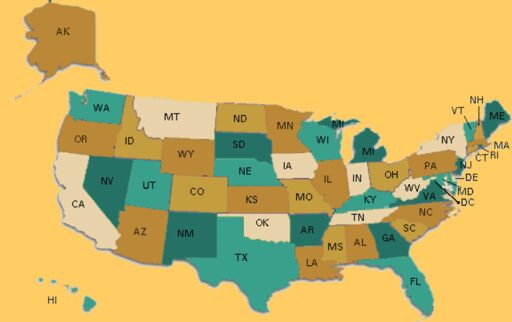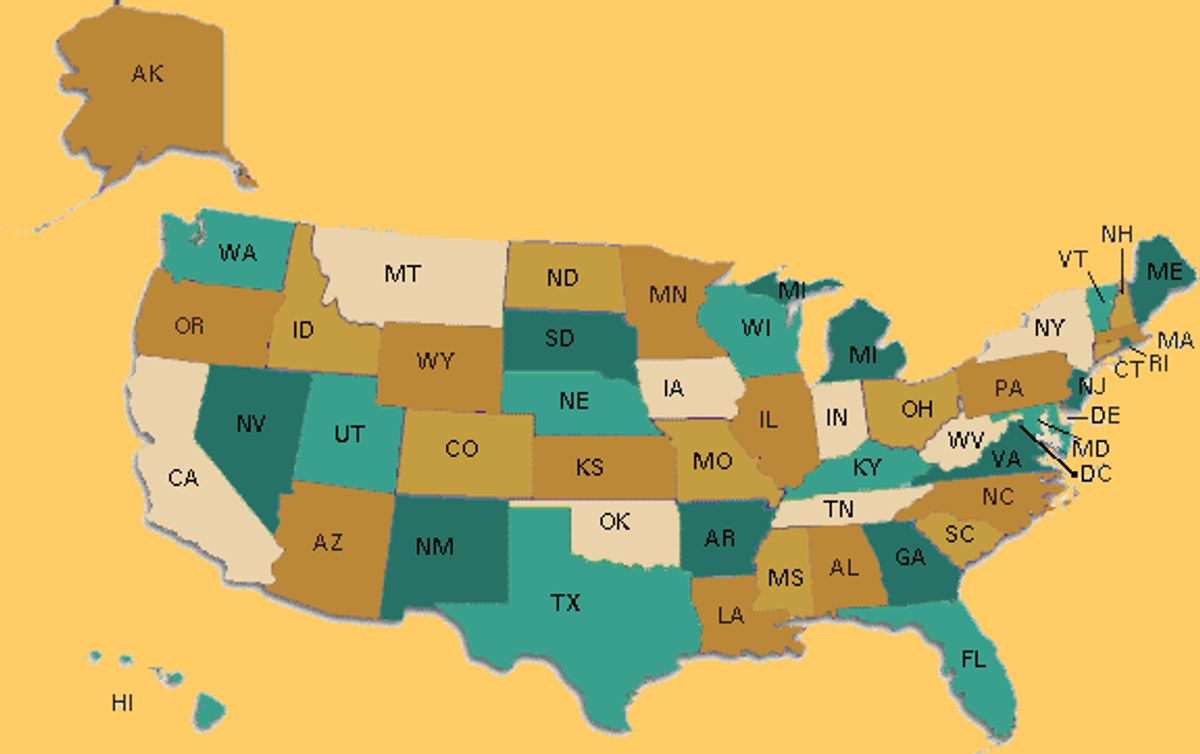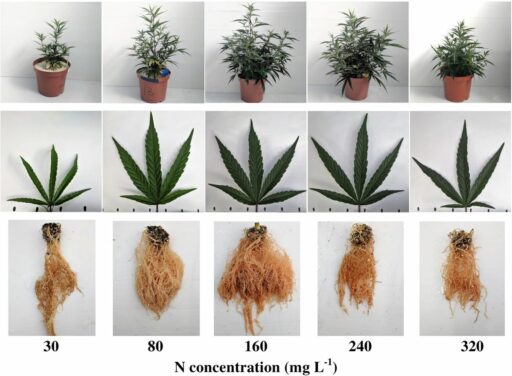The potential federal legalization of marijuana presents a complex tapestry of impacts on state laws and local communities. This article explores the multifaceted implications, from economic growth to criminal justice reform, and the challenges and opportunities that come with harmonizing federal and state policies. We delve into the nuances of how federal legalization could reshape the legal, social, and business landscapes, taking into account recent developments and expert insights.
Key Takeaways
- Federal legalization of marijuana is anticipated to bolster local economies, with a majority of adults recognizing its economic benefits.
- State-level criminal justice reforms and social equity policies are central to addressing the disparities caused by marijuana criminalization.
- Harmonization of federal and state marijuana policies could allow for interstate transportation of cannabis, despite continued prohibition in some states.
- Investment in communities disproportionately affected by marijuana prohibition is a common thread in state-level legalization efforts.
- Regulatory challenges and market trends in legal states highlight the importance of preventing predatory practices and ensuring fair labor conditions.
Economic Implications of Federal Marijuana Legalization

Projected Growth in Local Economies
The legalization of marijuana at the federal level is anticipated to significantly boost local economies. Legal cannabis sales in the United States alone are projected to reach $30 billion by 2025. This surge is expected to ripple through various sectors, providing a substantial economic lift.
Small cannabis businesses are particularly poised to thrive and contribute to local economic growth. They not only generate revenue but also serve the public good, fostering a sense of community investment. While additional research is needed to fully understand the impact, preliminary findings suggest that states supporting these businesses are already witnessing positive outcomes.
The public perception of economic benefits is also shifting, with a majority recognizing the positive influence of legal cannabis on local economies.
Here is a snapshot of public opinion on the economic benefits of legalizing recreational marijuana:
- 52% of adults believe it is good for local economies.
- 17% view it negatively.
- 29% see no impact.
Impact on the Cannabis Industry and Job Market
Federal marijuana legalization is poised to create a seismic shift in the cannabis industry and job market. With the introduction of federal cannabis permits, employers in the industry will be held to high labor standards, potentially making the sector a leader in labor-friendly practices. This could result in a surge of job opportunities and a more structured industry landscape.
- Employers with federal cannabis permits could face permit revocation for violating labor laws.
- The U.S. Department of Health and Human Services (HHS) is mandated to collaborate with the National Institutes of Health (NIH) on cannabis research.
- A focus on diversity in marijuana research is expected to broaden understanding and support industry growth.
The legalization is likely to bring about a wave of new challenges and opportunities, particularly for small, minority-owned, and social equity businesses. The pandemic has already highlighted the fragility of these businesses, and federal legalization could either exacerbate or alleviate these pressures.
The job market within the cannabis sector is anticipated to expand, with a variety of roles emerging from cultivation to retail. However, the industry must navigate the complexities of social equity policies and the persistent competition from illicit markets.
Challenges and Opportunities for Social Equity
The introduction of federal marijuana legalization brings a pivotal opportunity for empowering communities through social equity licenses. However, navigating this new landscape presents challenges. Social equity licenses, being a recent addition, can be intricate and unfamiliar territory for many.
The goal of social equity programs is to uplift economically struggling communities. Tailored community reinvestment efforts are essential to achieve these objectives effectively.
While the aim is to define and support social equity applicants and disproportionately impacted communities, the implementation of these policies is fraught with complications. Legal and procedural difficulties often arise, creating uncertainties for stakeholders. The process also provides an ongoing opportunity to engage with targeted communities to determine local needs and goals.
To address these challenges, a multi-faceted approach is necessary:
Changes to Criminal Justice and Law Enforcement

Rescheduling of Marijuana and Its Legal Consequences
The potential rescheduling of marijuana to Schedule III under the federal Controlled Substances Act marks a significant shift in the United States’ approach to cannabis regulation. This move, recommended by the U.S. Department of Health And Human Services, acknowledges marijuana’s accepted medical use and its lower risk compared to Schedule I substances like heroin and cocaine.
The rescheduling would not legalize recreational marijuana use federally, but it would align marijuana with drugs such as anabolic steroids and Tylenol with codeine, allowing cannabis businesses to claim federal tax deductions.
However, this change also raises questions about the federal government’s role in state-regulated medical marijuana programs. Advocates express concern that rescheduling may benefit the cannabis industry more than individuals convicted under marijuana prohibition. The call for comprehensive reforms, including resentencing for those still facing punishment for marijuana-related offenses, is growing louder. Only a handful of states have adopted resentencing provisions, reflecting the uneven landscape of criminal justice relief across the country.
State-Level Criminal Justice Reforms
With the advent of federal marijuana legalization, states have been actively amending their criminal justice systems to align with new norms. Record relief and resentencing provisions have become pivotal components of these reforms, aiming to rectify past convictions and reduce the burden on individuals previously penalized under outdated marijuana laws.
- Record Relief Provisions: These are designed to expunge or seal past marijuana convictions, thereby alleviating the long-term consequences for affected individuals.
- Resentencing Provisions: Aim to adjust the sentences of those currently serving time for marijuana-related offenses, potentially leading to early release or reduced sentences.
The integration of social equity policies into criminal justice reform is complex, involving legal and procedural challenges. Yet, it remains a cornerstone of the states’ approach to rectifying historical inequities.
While some states, like Arizona and California, have enacted both record relief and community reinvestment during legalization, others, such as Ohio, have taken a more indirect approach. Ohio’s recent initiative directs marijuana tax revenue towards studying and funding broader criminal justice reforms, including expungement and legal aid, as part of its social equity and jobs program.
Implications for Interstate Cannabis Trafficking
With federal marijuana legalization, the dynamics of interstate cannabis trafficking would undergo significant changes. States could no longer prevent the transport of cannabis products between legal states, even if they maintain their own prohibitions on production and sales. However, federal laws would continue to enforce trafficking prohibitions in states that ban marijuana and in legal states with specific trafficking laws.
- Federal legalization may necessitate updates to banking regulations, allowing financial institutions to service legitimate cannabis businesses without fear of federal reprisal.
- A grant program could be established to fund organizations that aid in job training, reentry services, and legal assistance, potentially mitigating some negative impacts of past cannabis criminalization.
The shift in policy would require a delicate balance between respecting state sovereignty and ensuring a cohesive national framework for cannabis transportation and law enforcement.
Federal and State Policy Harmonization

Transportation of Cannabis Across State Lines
With federal marijuana legalization, the dynamics of transporting cannabis across state lines would undergo significant changes. While states could not block the transit of cannabis products between jurisdictions where it is legal, they would retain the authority to enforce trafficking laws within their borders, especially in states maintaining prohibition.
- States could not prevent the transportation of cannabis between legal states.
- Federal laws would still prohibit trafficking in prohibition states and in legal states with trafficking laws.
- Financial institutions would require updated guidance from FinCEN to service cannabis businesses.
The establishment of a federal grant program could support non-profit organizations in providing essential services such as job training and legal aid, fostering a more inclusive industry.
The interplay between federal and state regulations would necessitate careful navigation to ensure compliance, particularly for businesses operating in multiple states. The need for clarity in the legal framework is paramount to avoid federal intervention in what is essentially interstate commerce.
Continued Prohibition in Non-Legal States
Even with federal legalization, states retain the autonomy to prohibit marijuana within their borders. This creates a patchwork of laws where neighboring states may have vastly different regulations. For instance, while one state may have a flourishing legal market, its neighbor could impose strict penalties for possession or sale.
States that continue prohibition cannot, however, block the transport of cannabis products between legal states. This is a critical point for maintaining a coherent national market:
- Federal laws would still prohibit trafficking in states that ban marijuana.
- Legal states must enforce their own trafficking laws to comply with federal regulations.
- A grant program could be established to support non-profit organizations aiding with job training and legal aid.
The juxtaposition of state and federal laws leads to a complex legal landscape, where the same substance can be treated with starkly different legal consequences.
The table below outlines the status of marijuana legalization across various states, highlighting the diversity in state-level approaches:
| State | Legal Status | Action Taken |
|---|---|---|
| New Jersey | Legal | Advocacy for further reforms |
| New Hampshire | Prohibition | Calls for legalization |
| Pennsylvania | Medical Use | Efforts to amend DUI laws |
| Georgia | Prohibition | Push to end criminalization |
The result is a nation where marijuana is widely available in some states, yet remains heavily criminalized in others, leading to a confusing and often contradictory legal environment.
Federal Funding for Community Support Programs
The introduction of federal funding for community support programs marks a significant shift in the approach to marijuana legalization and its associated societal impacts. Federal initiatives are expected to bolster local efforts in providing comprehensive support to communities affected by the war on drugs. These programs aim to address the disparities caused by previous marijuana policies and to promote equitable growth and development.
Federal funds are allocated to various states with structured programs designed to reinvest in local communities. For instance, California has been allocated $30 million from cannabis taxes for local equity programs, with plans to increase this to $50 million by FY 2022-2023. States like Missouri have established funds such as the Veterans, Health, and Community Reinvestment Fund, which is fueled by taxes and fees to offer grants for addiction treatment and support services.
The program is intended to expand and strengthen the capacity of local community prevention providers to implement evidence-based prevention programs.
While the allocation of federal funds is a positive step, it is crucial for these programs to be transparent and accountable. Annual grantee reports and the strategic use of funds for public health, justice reinvestment programs, and social equity areas will be essential in measuring the success and impact of these initiatives.
Social Equity and Community Investment

Addressing Disparities in Marijuana Criminalization
The federal legalization of marijuana presents a pivotal opportunity to rectify the historical injustices faced by underserved communities. These disparities are evident in the disproportionate impact of marijuana criminalization on Black and Latino communities. An equity action plan for marijuana reform is essential to dismantle these barriers and promote fairness.
- Criminal justice reforms must include record relief and resentencing initiatives.
- Support for underrepresented groups in the cannabis industry is crucial, through technical and financial assistance or reserved licensing.
- Targeted investment in communities disproportionately affected by marijuana prohibition is necessary to foster economic benefits.
Given the complex nature of these disparities, states are encouraged to evaluate the effectiveness of their social equity policies. It is imperative to ensure that the communities most harmed by marijuana prohibition are the ones to benefit economically from its legalization.
Facilitating Industry Participation Among Underrepresented Groups
Federal marijuana legalization presents an opportunity to address historical inequities within the cannabis industry. States are exploring various strategies to support industry participation among communities disproportionately affected by marijuana criminalization. These strategies often involve two main approaches: license assistance programs and eligibility criteria based on personal circumstances and community impact.
License assistance programs typically offer financial and technical support to eligible applicants. This support is crucial in navigating the complex landscape of state licensing requirements. The table below outlines the two primary forms of assistance provided:
| Assistance Type | Description |
|---|---|
| Financial Aid | Grants, loans, and fee waivers to reduce the economic barriers to entry. |
| Technical Support | Guidance on regulatory compliance, business planning, and market analysis. |
Eligibility criteria for social equity programs are essential in ensuring that the intended beneficiaries can participate. States must carefully define who qualifies as a social equity applicant and what constitutes a disproportionately impacted community. This involves a combination of personal circumstances and a broader conceptualization of community impact.
By fostering an inclusive environment, the industry can benefit from a diversity of perspectives and experiences, ultimately leading to a more equitable and robust market.
Investment in Disproportionately Affected Communities
Federal marijuana legalization presents a unique opportunity to redirect the economic benefits towards communities that have been disproportionately affected by previous drug policies. Investment in these communities is not only a matter of justice but also a strategic economic move.
Federal excise tax revenue generated from cannabis sales could be earmarked for community reinvestment programs. These funds could support education, healthcare, and infrastructure improvements, fostering long-term growth and stability.
- Community Reinvestment: Allocation of funds to improve local facilities and services.
- Defining Social Equity Applicants: Ensuring that those most affected are given priority in new business opportunities.
- Ohio Community Reinvestment: A case study in directing funds to where they are most needed.
By strategically investing in affected communities, the federal government can help mitigate the historical impact of drug policies and promote equitable economic development.
Business Landscape and Regulatory Challenges

Market Trends and Sales Records in Legal States
The legalization of marijuana at the federal level has led to a dynamic shift in market trends and sales records across states where cannabis is legal. Arizona’s marijuana sales soared to $1.4 billion in 2023, predominantly driven by adult-use consumers, indicating a robust demand in the recreational market.
In New Mexico, retailers celebrated a new sales milestone in March, reflecting the growing acceptance and integration of cannabis into local economies. However, the landscape is not without its challenges. Missouri, for instance, has had to revoke nine business licenses due to social equity ineligibility, highlighting the complexities involved in ensuring fair industry participation.
The evolving business landscape underscores the need for vigilant regulatory oversight to prevent predatory practices and support equitable growth within the industry.
The table below encapsulates the sales achievements and regulatory hurdles faced by different states:
| State | Sales Record (Year) | Notable Regulatory Action |
|---|---|---|
| Arizona | $1.4 Billion (2023) | – |
| New Mexico | New Record in March | – |
| Missouri | – | Revoked Licenses Over Equity Issues |
Union Disputes and Labor Law Implications
The intersection of federal marijuana legalization and labor laws introduces a new dynamic in the cannabis industry. Employers holding federal cannabis permits may face permit revocation if they violate certain federal labor laws, signaling a move towards a more labor-friendly industry. This policy could set a precedent for labor relations within the cannabis sector, distinguishing it from other industries.
- Federal cannabis permits and labor law compliance
- Potential for permit revocation as a deterrent
- The unique position of the cannabis industry in labor relations
The integration of labor law compliance into the federal permitting process underscores the importance of protecting workers’ rights in the burgeoning cannabis industry.
The U.S. Department of Health and Human Services (HHS), in collaboration with the National Institutes of Health (NIH), is tasked with promoting research into the diverse impacts of cannabis, including workplace implications. This research initiative could provide valuable insights into the development of fair labor practices and dispute resolution mechanisms within the industry.
Preventing Predatory Practices in License Acquisition
The legalization of marijuana at the federal level introduces new challenges in ensuring fair access to market opportunities. States are taking measures to prevent predatory practices during the license acquisition process, particularly aimed at protecting social equity applicants. As shown in Table 4 below, a number of states have enacted statutes to safeguard these individuals.
| State | License Assistance Programs | Equity License Allocations |
|---|---|---|
| Total | 20 States | 12 States |
These programs are designed to provide financial and technical assistance, ensuring that the benefits of legalization are equitably distributed. Missouri, for example, has issued warnings to marijuana license applicants about potential predatory practices surrounding social equity status.
To further support social equity goals, separate equitable licensing grant programs are proposed, providing funding to promote industry participation by minority and low-income individuals. Additionally, a 10-year pilot program is suggested to facilitate small business loans to startups and businesses owned by underrepresented groups.
The combination of license assistance programs and equity license allocations is a critical step towards a more inclusive cannabis industry. It is essential to monitor these initiatives to ensure they effectively counteract any predatory practices and truly support community social equity goals.
Conclusion
The potential federal legalization of marijuana presents a complex interplay with state laws and local communities. While economic benefits are anticipated, with a majority viewing legalization as positive for local economies, the challenges of integrating social equity policies are significant. Efforts to ensure that communities disproportionately affected by marijuana criminalization benefit economically are underway, but the path is fraught with obstacles such as incomplete data and predatory practices. The reclassification of marijuana at the federal level could lead to criminal justice reforms and influence political landscapes, but concerns remain about whether these changes will fully address the historical harms of marijuana prohibition. Ultimately, the impact on state laws and local communities will depend on the careful balancing of economic interests, social justice, and regulatory frameworks to ensure that the benefits of legalization are equitably shared and the pitfalls are responsibly managed.
Frequently Asked Questions
How does federal marijuana legalization impact local economies?
About 52% of adults believe that legalizing recreational marijuana is good for local economies, while 17% think it is bad, and another 29% see no impact.
What are the social equity challenges in the cannabis industry?
Challenges include facilitating industry participation among communities disproportionately affected by marijuana criminalization and ensuring they benefit economically from legalization.
How is interstate cannabis trafficking affected by federal legalization?
Federal laws would still prohibit trafficking in states that ban marijuana and in legal states that impose laws for trafficking, even though states cannot prevent transportation of cannabis between legal states.
What criminal justice reforms accompany marijuana legalization?
Reforms typically include record relief and resentencing, and as of 2023, the majority of legalization states have enacted some form of criminal justice reforms.
What measures are being taken to prevent predatory practices in marijuana license acquisition?
States like Missouri are warning marijuana license applicants about predatory practices, especially around social equity status, and are taking steps to address such issues.
What impact will reclassifying marijuana to Schedule III have on criminal justice?
Reclassification to Schedule III signifies accepted medical use and lower danger, which could lead to reduced penalties and broader access, but may not address all harms of past criminalization.





